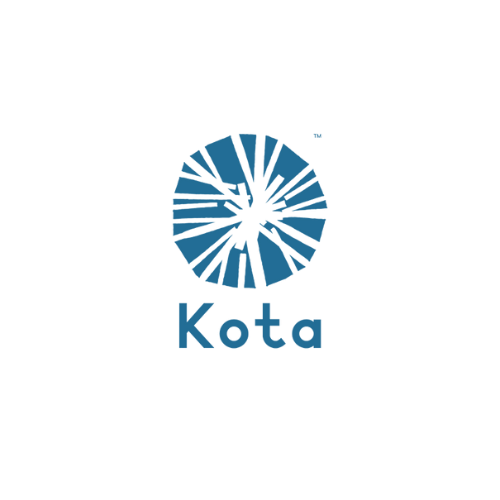Meet Jonathan Kalin: Founder & Executive Director of Party With Consent
By: Jacinta David Miller
What inspired you to create Party with Consent?
Towards the end of my Sophomore year in college (almost 5 years ago now!), I found myself in a situation where I was named Captain of the Men’s Basketball team and President of a new group on campus called Male Athletes Against Violence. At that time, there was a heated debate going on about sexual assault on campus due to a recent case that led to multiple members of the school’s Men’s Football team getting suspended or expelled. Given the context, I felt a moment of obligation having a respected voice within both the anti-violence, feminist community and within the male athletic community, I existed at the intersection of these two sub-groups on campus who were both frustrated with each other.
While this was going on, a campaign (if you can call it that) called “Party With Sluts” began catching attention on college campuses throughout the US thanks to fraternity merchandise websites and popular YouTube personalities. They made party tank-tops with their tagline in impact neon font (look up #partywithsluts). It was made clear to me by my peers in the anti-violence and feminist communities why this shirt was problematic (amplifies rape culture, creates a double standard around sexuality, belittles women to just their sexuality, etc.), yet simultaneously I was inspired by how much the neon impact font party tank-top resonated with stereotypical college campus culture. And then wondered what if we could amplify something positive rather than something derogatory. So delete sluts and put in consent and Party With Consent was created with our first order of 100 tank-tops.
With documentaries like The Hunting Ground and the It’s on Us campaign, the issue of campus rape has really been at the forefront of culture in recent years. Do you think that this is because campus rape has become more prevalent or are we finally ready as a society to accept and confront this issue?
Definitely the latter. If you speak with anyone who has experience in the sexual assault prevention/advocacy space they’ll tell you one of the most widely understood metrics for the prevalence of sexual assault - reported sexual assaults – has much more to do with the word reported than the word sexual assaults. There are a variety and combination of circumstances that cause low reports of sexual assaults. These factors include: the general sexism within our culture, colleges having reasons to want to keep their sexual assaults reported numbers low, and a normalization of sexual assault being dismissed as “miscommunication” or “boys being boys” leading to community and self-shaming of survivors. These aspects of campus and social culture have led to the low numbers of on-campus sexual assault reports, not because rape was less prevalent, but because reporting it was so hard.
The Hunting Ground details the story of two women who survived sexual assault in college and brought their case to the attention of the federal government because their colleges were acting out of line with Title IX. The two women and the many other survivors of sexual assault came forward not only with their accounts of assaults, but stories about the aftermath of the assaults and the shame they experienced in their community, which often proved to be more painful. Their exposure of their experiences mixed with a benevolent White House administration, who created a taskforce on on-campus sexual assault in response to the slew of stories they were receiving is why on-campus sexual assault is more within the mainstream dialogue. And as a result the numbers of sexual assaults reported are up, and while each sexual assault is a tragedy – the fact that there is more reporting is excellent news.
April is Sexual Assault Awareness Month, how would you like people to engage with this issue?
My work at Party With Consent often comes in the form of working with men on this topic, an aspect of sexual assault awareness and education which is all too easy for us to avoid. When I do workshops with men, my biggest hope is that we introspect on why sexual assault is nearly always perpetrated by men (whether the victim is a man, woman, non-gender binary individual). Out of this type of introspection, I’m optimistic that we can broaden the all too narrow definition of masculinity and redefine what in means to be a man. When this happens, I’m also optimistic that we can change the paradigm around sexual assault by readily supporting survivors and holding perpetrators responsible.
How can the Kota-Alliance and the Women’s Lab at the CSI help you achieve your objectives for this year?
We’re looking for support on the following initiatives:
- Strategic Planning
- Party With Consent is sustained by doing speaking engagements and workshops at college and high school campuses across the country. If anyone at Kota or the Women’s Lab knows of schools that we might be a good fit for, we’d be thrilled to be introduced
- We’re looking for organizations that work with on-campus activists and might the Party With Consent brand supportive of their culture changing initiatives. We’d be thrilled to partner with these orgsanizations.
- We’re looking for opportunities to engage young men and boys to redefine masculinity through basketball. If there are any schools in these networks or basketball teams that might have interest in this, we’d be thrilled to learn more about their work.
For other organizations and resources on the topic of sexual assault visit:
SurvJustice - a national not-for-profit organization working for justice for all survivors of sexual violence offering the support of effective legal assistance, policy advocacy, and institutional training.
Callisto - A non profit, creating technology that combats sexual assault and increases survivor agency.
